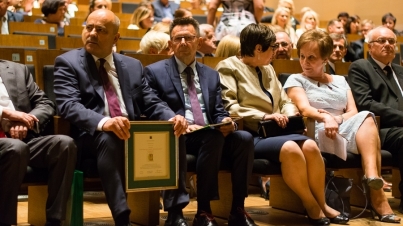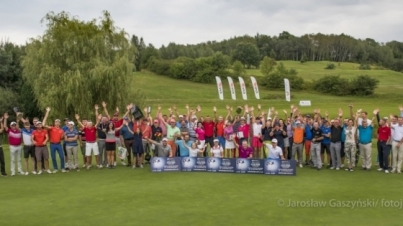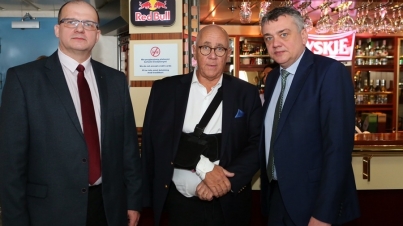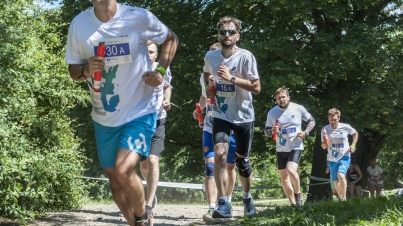News
News
People
Presentations
After Hours
Calendar
Currencies
Galleries
Advertising
About us
Contact
Adressess
Newsletter
Cooperation between research entities and the business is the necessity of our times
Interview with Konrad Frontczak, President of the Innovation Center at the Maritime University of Szczecin, established in early August 2013
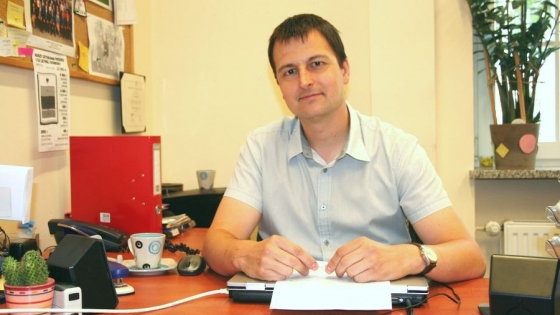 Konrad Frontczak
/fot.: ŁP /
Konrad Frontczak
/fot.: ŁP /
Szczecinbiznes.pl: What projects is the Innovation Center at the Maritime University of Szczecin going to engage in?
Konrad Frontczak: The purpose of the Center is to support the Maritime University in commercialization of the results of research and development work. Preparations for establishment of that entity had been underway for some time and, finally, the deed of incorporation was signed on 2 August 2013. In accordance with the Polish Higher Education Law, universities may establish special purpose vehicles, aimed at enabling them to “reach the business”, being their “helping hands” that may take their own, independent decisions, which should translate into prompt and effective action. Thus, the Innovation Center at the Maritime University of Szczecin is to maintain a close liaison with the business and support knowledge transfer from the university to the market in all available forms permissible under Polish or EU legislation.
Why are research entities interested in liaising with the business and what is the purpose of such cooperation?
It is the necessity of our times, widely discussed in Poland at present, which leads to establishment of entities similar to the one launched in Szczecin. It is also reflected in global trends. More developed countries have already discovered that such activities may produce amazing results for local or regional economies, not to mention the parent entity.
Participation in the Top 500 Innovators program provided me with the opportunity to spend two months in the Silicon Valley, where I could observe similar solutions at Stanford University, one of the major academic centers in the world. I could see for myself how well it works in California. And it is not only about selling licenses. Universities which maintain an effective liaison with the business environment exert a powerful impact on development of the city or the region, which, needless to say, translates into growing interest of both students and public or private investors.
To put it simply, on the one hand the Maritime University of Szczecin is planning to sell its knowledge in the form of inventions or services and on the other, we count on closer cooperation with the business, the scope of which may include, for instance, appointment of research and industrial consortia, and this, in turn, should bring several other benefits. What exactly? For example, an industry leader aware of the fact that the university is close to the business, perceives it as a potential partner and a source of qualified employees. So the university is invited to implement joint projects and, consequently, future workforce is trained by that entity. It all overlaps and works perfectly.
What will be the first tasks to be taken on by the Center?
As I have already mentioned, our primary role is to commercialize industrial property. At present, such a process is being carried out for an invention from the marine engineering industry. The device has been developed by Artur Bejger, PhD, Eng., Vice-President for Research at our university. The project has been undertaken together with an investor. As a result, the Innovation Center at the Maritime University of Szczecin and the investor will establish a special purpose vehicle to bring the product to the market. This is not the only task fulfilled by the Center, though. We are constantly focused on preparing ground for cooperation with the industry by making our laboratories, research facilities and staff available to business entities. We are aware of the demand for such services and the above idea will also be put into action. To learn more about our offer, please visit the Internet website of the Center for Maritime Technology Transfer.
How would you describe the cooperation between research entities and the business at the Maritime University of Szczecin?
The majority of our researchers need to cooperate with the industry due to their specialization. For instance, some of them need to sail in order not to lose their licenses. Not only do shipowners support our students but the maritime economy staff also receive training provided by our university and we have recently launched a state-of-the-art Baltic Fishery Training Center in Kołobrzeg. Our students will soon obtain a grant of several thousand zlotys to launch a business and they also participate in internship programs run in various EU member states. This is accompanied by industry meetings, conferences and other projects. A number of heads and employees of the leading maritime companies in Poland are our graduates. Our relationships need to be further strengthened and this task will also be fulfilled by the Innovation Center at the Maritime University of Szczecin, which is free to join various research consortia, projects and other initiatives. To be honest, I am looking forward to confronting that challenge.
Does the Maritime University of Szczecin come up with numerous inventions?
Our university has a narrow specialization compared to such tycoons as the West Pomeranian University of Technology or the AGH University of Science and Technology. Currently, we are working on bringing two of our flagship inventions to the market. One of them has already been mentioned here. The other one is NAVDEC, that is to say a navigational decision support system. The project has been authored by a team of our researchers led by Zbigniew Pietrzykowski, PhD, Eng. The above invention is being commercialized in a slightly different manner, through an entity established by a group of researchers (spin-out). In addition, we constantly focus our efforts on preparation of further patent applications at the Center for Maritime Technology Transfer and undertake new consortium initiatives, which should add practical value to the economy.
Is there also a chance for cooperation with local enterprises?
It depends on which aspect of our activities you are talking about. As for inventions, it is indisputable that the maritime industry in Poland is being reconstructed and in order to find potential clients we sometimes need to search in foreign markets. Obviously, it is possible to test inventions on Polish entities and the Polish industry may also be their recipient. However, we are not limited to the Polish market. As regards the use of our laboratories or expert staff, we expect that a number of local companies may be interested but we also count on our German neighbors.
Talking about commercialization of inventions, who makes money on such business and how?
Actually, the objective is that all those who are concerned could reap the rewards and the win-win strategy is a key to success. For instance, profits delivered by inventions brought to the market are equally shared by the university and the researcher. Needless to say, the level of such profits may differ and be the effect of not only negotiations conducted with the investor but also the commercialization model chosen. Sometimes, it is worth considering whether the product could be sold for a token sum so that actual profits may be derived from dividends. Several commercialization models are available. Selling licenses is the simplest one. It may also be transferring the rights to a third party, such as the Center itself, or establishment of one’s own business. The last solution opens up a number of opportunities for growth, often accompanied by creation of new jobs. At some point, a business like that may end its relationship with the university. And that’s exactly the way that major American corporations have been formed. After all, Szczecin is known for researchers who have found fulfillment in the business.
What do you think the future holds for the Center?
Numerous projects carried out by our university focus on subjects which have not frequently been addressed in Poland. Recently, I have attended several meetings with representatives of similar entities operating across Poland and talked to a head of a company established at the University of Łódź, where such a solution works perfectly. They sell licenses, know-how and rights, maintain a close liaison with the business and begin to reap the profits in the form of dividends. Such a scenario is also plausible for Szczecin. However, one should be aware of the fact that the period required to start up such a business may be lengthy. Stanford has made a profit after 15 years, while the British model is based on the assumption that the above period may be up to 10 years. If we manage to persuade industry leaders and those active in the area where research and the business overlap, I will not worry about the final result.
ŁP


































